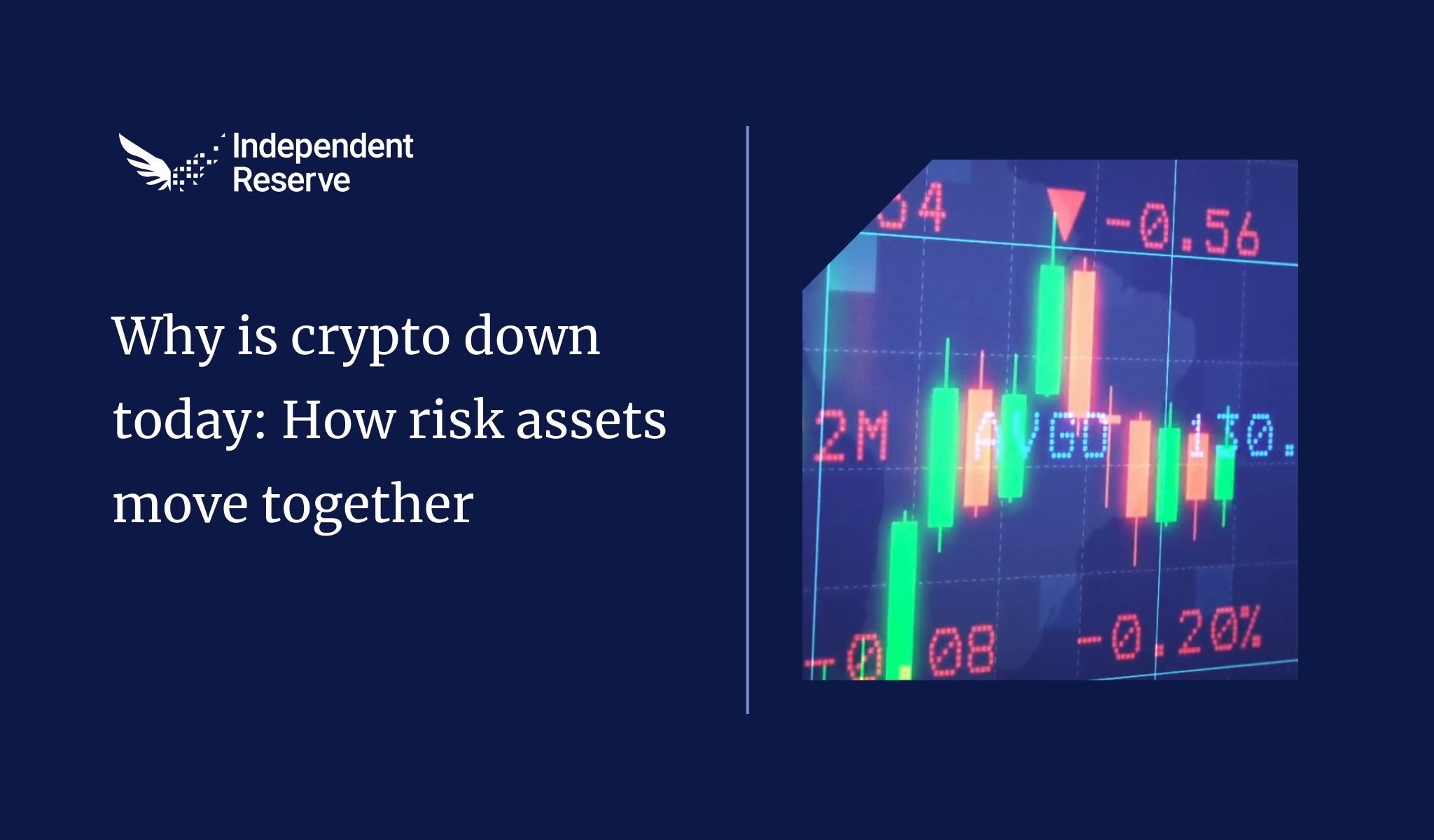The decentralised, borderless nature of crypto enables anyone to accept payments globally without needing bank-regulated accounts or merchant facilities. As Bitcoin’s price continues to rise, its popularity has given rise to a range of increasingly sophisticated scams targeting retail investors.
As with any financial product, it pays to understand the risks and protect yourself.
How scammers reach you
Scammers typically initiate contact via:
- Messaging platforms like WhatsApp, Telegram, TikTok, Facebook Messenger, and WeChat
- Social media and fake social media ads
- Dating apps
- Fake job ads
- Search engine ads
- Fake websites
- YouTube livestreams or deepfake videos
How to protect yourself
Quick tips to stay safe:
- Bookmark and only use https://www.independentreserve.com or our official Android or iOS apps.
- We do NOT offer a Chinese language version of the app.
- Bookmark other official websites you may use.
- We’ll never ask you to install software or share your screen.
- We’ll never ask you to move or transfer your crypto.
- Never send crypto to pay taxes or unlock “found” funds or crypto.
- Never trust anyone claiming they can recover lost crypto.
- Never share your account login information.
- Don’t click on any email links unless you have verified their authenticity.
- Don’t download apps or browser extensions unless you have verified they are legitimate.
- Reject investment offers requiring an upfront payment, especially if the fee must be paid in crypto.
- Always enable 2-factor authentication (2FA) to add an extra layer of security to all your online accounts.
- Download Scam Shield to report scam calls and messages.
- Always do your own research and get as much information as you can from official sources, before investing in any cryptocurrency project or crypto-related offering.
Tip: If you are in doubt whether you are using the official Independent Reserve website, contact us and ask through one of our official channels.
Watch for fake websites and schemes
- Do not engage with anyone claiming to represent Independent Reserve offering an investment scheme.
- Carefully check URLs for typos or strange characters.
- Bookmark https://www.independentreserve.com instead of searching for it.
- Report fake ads via the “⋮” menu.
- Notify us of fake ads via support@independentreserve.com so we can quickly escalate the removal of fake ads.
Don’t move your crypto or funds under pressure
- End the chat or call immediately if you’re told to move your crypto or funds.
- If you believe your account was compromised, contact us immediately at support@independentreserve.com or online support.
- Never share passwords, addresses or codes under pressure.
Stay alert
- Avoid clicking on DMs or unsolicited offers.
- Enable 2FA (two-factor authentication).
- Only trust content from our official accounts: X/Twitter, YouTube, Facebook, Instagram, TikTok (SG), TikTok (Global), LinkedIn (SG), LinkedIn (Global), Reddit, WeChat.
Follow our official WeChat account:

How to spot common scams
Investment scams
Investment scams promise high returns with little risk or even that returns are ‘guaranteed’. Often, these scams create urgency to make fast decisions before an opportunity “closes.”
You might be referred to this scam by friends or family, claiming they found a new investment platform that’s been “working well for them.” At first glance, the platform looks professional, and you may be able to withdraw a small profit at the start. But that’s usually just to make you invest more. Eventually, withdrawals are blocked, and your funds disappear.
Investment scams are common in Telegram or WhatsApp groups, where scammers promote ‘bonus hours’ or ‘special’ token deals. These scams often appear in discussion threads that sound legitimate, like groups posing as Vanguard investment communities.
Tip: Even if a close friend or family member suggests an investment platform, it may still be a scam. Friends or family may have been shown fake profits or could be victims themselves. Always do your own research.
Fake online stores and business opportunities
Another common scam involves “business opportunities” where you’re invited to invest in an e-commerce platform, usually paying in cryptocurrency. These may be clothing or electronics stores.
The pitch is often something like:
- “Start your own store!”, or
- “You’ll earn passive income from overseas customers!”
However, after you send your crypto, nothing happens — or you’re sent login details to a dashboard that shows fake returns. There’s no real store, no customers, and no product. It’s just a way to collect your money and disappear.
Tip: Limited contact details, only dealing in crypto and only engaging through in-app support can be a red flag. Consult a financial advisor or lawyer before investing, especially for significant sums. They can help verify the opportunity’s legitimacy and review contracts or terms. Report suspicious schemes to the Singapore Police Force or ScamShield for further investigation.
Fake websites and apps
Scammers often create fake crypto trading sites or imitate popular crypto apps or wallets to trick unsuspecting users. These fake sites often have minor differences, like a single letter change in the URL, making them hard to spot at first glance.
At first, the fake site lets you make small withdrawals to gain your trust. Once you start putting in bigger amounts or try to withdraw your funds, the scammers give fake excuses, like government taxes, minimum balance value requirements, to make you add more money. Ultimately, the site shuts down and steals all your funds.
Tip: Only use https://www.independentreserve.com and bookmark it on your device. If using your mobile, only use our official Android or iOS apps. We do not offer a Chinese language version of our app.
Romance or “pig butchering” scams
This one is more personal. It starts on dating apps or social media, where someone builds a connection with you over time. After a few weeks, they mention a “great investment opportunity”, often related to crypto.
The scammer will guide you through setting up accounts, transferring money, and even show you fake profits. But when you try to withdraw funds or stop investing, the platform blocks you, and the person you trusted disappears.
Tip: Be cautious of anyone you meet online pushing crypto investments. Verify opportunities independently.
Remote access scams
If someone asks you to install AnyDesk or screen-sharing software, it’s almost certainly a scam.
Tip: We will never ask for remote access. Most reputable companies will never ask for remote access.
Deepfake scams
Using AI, scammers create realistic videos of government officials, celebrities, or public figures, like Elon Musk, endorsing fraudulent crypto investments. These videos lead to fake websites that steal your money or wallet details. It is also common to receive deepfake video calls from people posing as law enforcement officials, requiring you to share your personal credentials or to send money to pay a fine.
According to the Straits Times, Singaporeans lost over S$1.1 billion to scams in 2024, marking a 70% increase from 2023. Cryptocurrency-related scams alone accounted for nearly 25% of these losses, up from 6.8% the year before.
Tip: Verify endorsements through official sources. Celebrities rarely promote crypto giveaways. Confirm charges or fines through official channels.
Job offer scams
Criminals offer “remote work” or “payment processing” jobs, asking you to transfer crypto or money between accounts. Scammers create urgency and pressure, encouraging quick decisions while providing vague explanations about the work and the source of funds. In reality, you’re moving stolen funds, which could make you liable for money laundering.
Tip: Never transfer money or crypto to strangers, especially in job offers that seem too good to be true.
Fake recovery scams
Scammers will claim they can recover stolen assets or claim they’ve found crypto “owed” to you, but you must pay a fee to release it. Once paid, the scammer disappears.
Tip: Avoid anyone promising guaranteed recovery.
Drainer and fake airdrop scams
Scammers advertise free crypto giveaways (airdrops) through social media or emails, directing you to connect your wallet to a malicious website. Once connected, the site runs a script to steal your crypto.
Tip: Never connect your wallet to unverified websites. Free crypto offers are often a trap.
Rug pulls / “Pump & dump” schemes
A “rug pull” happens when the developers of a crypto project suddenly take all the money and disappear, leaving you with nothing. These developers are often anonymous and rarely caught, so the stolen money is usually gone forever.
A “pump and dump” is when a new token is heavily promoted online, often by influencers or fake celebrity endorsements, to get people to buy in. The price goes up quickly, and then the scammers sell all their tokens, causing the price to crash, leaving you with losses.
Tip: Avoid tokens that are hyped without a clear roadmap.


